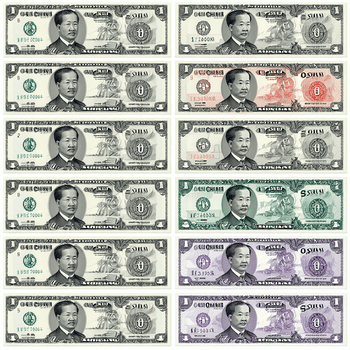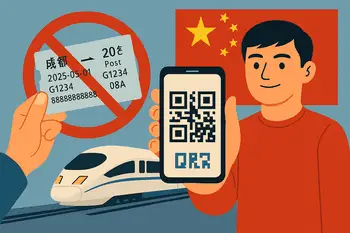
China maintains one of the world’s most complex foreign exchange control systems, directly impacting millions of expats and international businesses.
Understanding these regulations is crucial for legal compliance and avoiding penalties that can reach up to 30% of the transaction amount.
Disclaimer: This guide provides general information only. Currency regulations change frequently, and individual circumstances vary significantly. Always consult qualified financial or legal professionals and verify current regulations with official sources before making financial decisions.
China’s Foreign Exchange Control Framework
The State Administration of Foreign Exchange (SAFE) under the People’s Bank of China (PBOC) administers China’s capital controls through a dual-account system that strictly separates current account transactions (trade-related) from capital account transactions (investments, loans).
Regulatory Authority Structure
| Organization | Primary Responsibility | Website |
|---|---|---|
| SAFE | Foreign exchange policy implementation | safe.gov.cn |
| PBOC | Monetary policy and banking supervision | pbc.gov.cn |
| Local SAFE Branches | Regional compliance monitoring | Contact via main SAFE website |
Individual Currency Exchange Limits by Residency Status
Chinese Residents (Including Foreign Permanent Residents)
| Transaction Type | Annual Limit | Documentation Required |
|---|---|---|
| Foreign Currency Purchase | USD 50,000 equivalent | ID card, purpose declaration |
| Overseas Transfers | USD 50,000 equivalent | Bank compliance forms |
| Cash Withdrawal Abroad | CNY 100,000 equivalent | Bank card with overseas function |
Foreign Visitors and Temporary Residents
| Duration of Stay | Exchange Privileges | Limitations |
|---|---|---|
| Tourist Visa | Currency exchange with passport | Limited to reasonable personal needs |
| Business Visa | Exchange for business purposes | Requires proof of business activities |
| Work Visa (< 1 year) | Similar to tourist limitations | Bank account opening may be restricted |
Important: Regulations vary significantly by visa type and duration of stay. Always verify current rules with your bank.
Banking and ATM Access
Daily Withdrawal Limits
| Card Type | Typical Daily Limit | Variations |
|---|---|---|
| Chinese Bank Cards | CNY 20,000-50,000 | Varies by bank and account type |
| Foreign Bank Cards | CNY 10,000-20,000 | Subject to bank agreements |
| UnionPay International | CNY 10,000 | Standard across most ATMs |
Required Documentation for Large Exchanges
Amounts over USD 5,000 equivalent typically require:
- Valid passport or Chinese ID
- Proof of funds source (salary certificate, business income)
- Purpose declaration
- In some cases: tax compliance certificates
Business and Corporate Regulations
Foreign-Invested Enterprise (FIE) Categories
| FIE Type | Currency Privileges | Key Restrictions |
|---|---|---|
| Wholly Foreign-Owned Enterprise (WFOE) | Current account convertibility | Capital account restrictions apply |
| Joint Venture | Shared compliance responsibilities | Both parties must comply |
| Representative Office | Limited banking functions | Cannot conduct direct business transactions |
Capital Account Transactions
Requires SAFE approval:
- Foreign direct investment above certain thresholds
- Cross-border loans exceeding registered capital ratios
- Offshore security investments
- Real estate investments by foreign entities
Current Account Transactions
Generally permitted with documentation:
- Trade payments and receipts
- Service trade transactions
- Legitimate operational expenses
Recent Regulatory Changes and Trends
Shanghai Free Trade Zone and Other Pilot Programs
Since 2013, China has gradually tested currency liberalization in designated areas:
- Shanghai FTZ: Expanded foreign investment access
- Hainan Free Trade Port: Additional financial services opening
- Beijing FTZ: Focus on digital currency and fintech innovation
Digital Currency Developments
China’s digital yuan (e-CNY) rollout affects traditional currency flows:
- Increased transaction monitoring capabilities
- New compliance requirements for businesses
- Potential future integration with cross-border payments
Compliance Best Practices
For Individuals
- Maintain detailed records of all currency transactions
- Use only authorized financial institutions – never underground money changers
- Declare purposes accurately on all exchange forms
- Plan ahead for large transfers requiring documentation
- Keep copies of all approval documents
For Businesses
- Establish clear internal procedures for SAFE compliance
- Maintain dedicated compliance personnel for larger operations
- Submit required reports punctually to avoid penalties
- Seek professional guidance for complex transactions
- Stay updated on regulatory changes through official channels
Common Violations and Penalties
Individual Violations
| Violation Type | Typical Penalty | Additional Consequences |
|---|---|---|
| Underground money transfer | Fine up to 30% of amount | Potential criminal charges |
| False documentation | Administrative fine | Banking relationship restrictions |
| Quota violations | Restriction of future privileges | Regulatory blacklisting |
Business Violations
- Administrative fines: Up to CNY 300,000 for reporting violations
- Business restrictions: Loss of favorable FIE status
- Criminal liability: For serious foreign exchange crimes
Practical Scenarios and Solutions
Scenario 1: Expat Sending Money Home
Challenge: Regular salary transfers to home country Solution:
- Open Chinese bank account with international transfer capability
- Provide employment contract and tax documents
- Use bank’s official overseas transfer service
- Expect 2-5 business days processing time
Scenario 2: Emergency Large Transfer
Challenge: Unexpected medical or family emergency requiring immediate funds Solution:
- Contact bank immediately to explain circumstances
- Prepare all available documentation
- Consider temporary loan options from Chinese bank
- Explore embassy assistance if applicable
Scenario 3: Business Investment Import
Challenge: Foreign parent company needs to inject capital Solution:
- Work with qualified financial advisor
- Prepare comprehensive SAFE filing
- Ensure compliance with industry-specific rules
- Budget 2-4 weeks for approval process
Key Resources and Contacts
Official Resources
- SAFE Regulations Database: https://www.safe.gov.cn/en/
- PBOC Policy Updates: http://www.pbc.gov.cn/en/3688006/index.html
- National Financial Regulatory Administration: www.nfra.gov.cn
Professional Services
- Big Four Accounting Firms: All maintain China FX compliance practices
- International Law Firms: Specialized in Chinese financial regulation
- Local Banks: Most major banks have dedicated FX advisory services
Emergency Contacts
- Local SAFE Branch: Available through main SAFE website directory
- Bank Customer Service: Most banks offer 24/7 hotlines
- Your Country’s Consulate: For emergency financial assistance
Frequently Asked Questions
Q: Can I use cryptocurrency to bypass currency controls?
A: No. Cryptocurrency transactions are strictly prohibited in China and can result in severe penalties including account freezes and potential criminal charges.
Q: What happens if I exceed my annual exchange quota?
A: Exceeding quotas can result in suspension of exchange privileges for the current and following year, plus administrative fines.
Q: Can my Chinese spouse help me transfer larger amounts?
A: Each individual has their own quota. Using someone else’s quota fraudulently is a serious violation with criminal implications.
Q: How long do SAFE approvals take for business transactions?
A: Standard approvals typically take 15-30 working days, but complex cases can take several months.
Conclusion
China’s foreign exchange controls require careful navigation and strict compliance.
The regulatory environment continues evolving, with gradual liberalization in some areas while maintaining strict oversight in others.
Success requires staying informed, maintaining proper documentation, and seeking professional guidance for complex situations.
Remember: This information reflects general understanding as of May 2025. Currency regulations change frequently, and individual circumstances vary significantly. Always verify current regulations and consult qualified professionals before making financial decisions.



